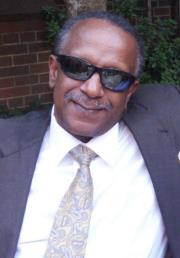The Gantt Report

As a 19 year old Georgia State University student, I became a member of my fraternity’s pledge club. As a pledge, I was beaten unmercifully, ridiculed, taunted and more as was tradition in a variety of campus groups.
Once I crossed the burning sands, so to speak, and became a founding member of the GSU chapter of the fraternity, I was elected founding President by my founding brothers.
One of my first acts as president was to prohibit hazing!
Yes, my brothers put stress on future pledges but more often than not we required them to wash cars, run errands, do homework, raise money or volunteer in the community, for instance.
Recently, a Florida university band member died suddenly, reportedly after being hazed by some of his fellow band members.
If you don’t know, hazing is a crime and despite that fact, hazing goes on essentially on every college campus in every state and in most cities.
You tell me the name of any former or current college student that has ever been a part of a fraternity, sorority, band, athletic team, military unit or secret campus society that has not been hazed or does not know if hazing exists!
Hell, you don’t even have to be a college student to know that hazing possibly exists.
Now, earlier in 2011, a criminal act was allegedly committed at Pennsylvania State University. Once it was learned that university officials and administrators were aware of suspicious acts involving possible crimes against a young person, the athletic director was fired, coaches were fired, assistant coaches were fired and even the President of Penn State University was fired.
Back to the present, the only person fired so far in the aftermath of the recent hazing tragedy has been the university band director.
How convenient?
The band director almost immediately demanded his reinstatement on grounds that he went to proper administrative channels, informed university officials that hazing was taking place in the band, but the fired band director said no one sought to terminate hazing or suspend or expel students involved in hazing from the band or from the school.
Well, the parents of the deceased student have retained counsel and so has the band director. The university has staff counsel and a law school full of legal professors and law students that can possibly assist the university in any legal matter. But who is responsible in a court of law when hazing results in a death?
Obviously the school and the state that operates the school are liable but there is a limitation on damages injured persons can received from the state. Any amount over the limitation must come in the form of a “claims bill” and be voted on by state legislators and signed by the governor.
The Gantt Report wants parents to know the deepest pockets involved in universities most likely are the pockets of the members of university boards of trustees.
What do trustees have to do with it? University faculty, staff and administrators must be trained on ways to protect students by preventing activities that could be criminal or harmful to the students that attend the school.
Seems to me, if university trustees vote on university budgets and part of that budget contains dollars for training, the trustees should have no problem discussing in court how state funded training dollars were or were not used for the necessary and required training that covered activities like, how to recognize and how to stop hazing!
If hazing was allowed to persist because university employees were not trained on how stop hazing, perhaps the university trustees are personally liable for lack of institutional control of public taxpayer dollars or voting for training budgets when employees were inadequately trained. Interested lawyers should perhaps review federal case Brown vs. City of Oakland, California 1992.
If a crime has been committed and no one is liable or responsible for the death of a student should we be concerned? Or is there a pecking order of college crime where some crimes are reported to police, some crimes are ignored, some are covered up and some are just bottled up for years and years by silent accomplices?
Again, when a bad event took place at Penn State, people who had some knowledge of possible criminal activity along with ultimate responsibility at the school and those administrators that had the biggest university pay checks were fired.
But you know, not all schools are alike.
http://travel.yahoo.com/p-interests-40883953;_ylt=AjRzWHTR_8GrzsPETruJoZZHD.h_


